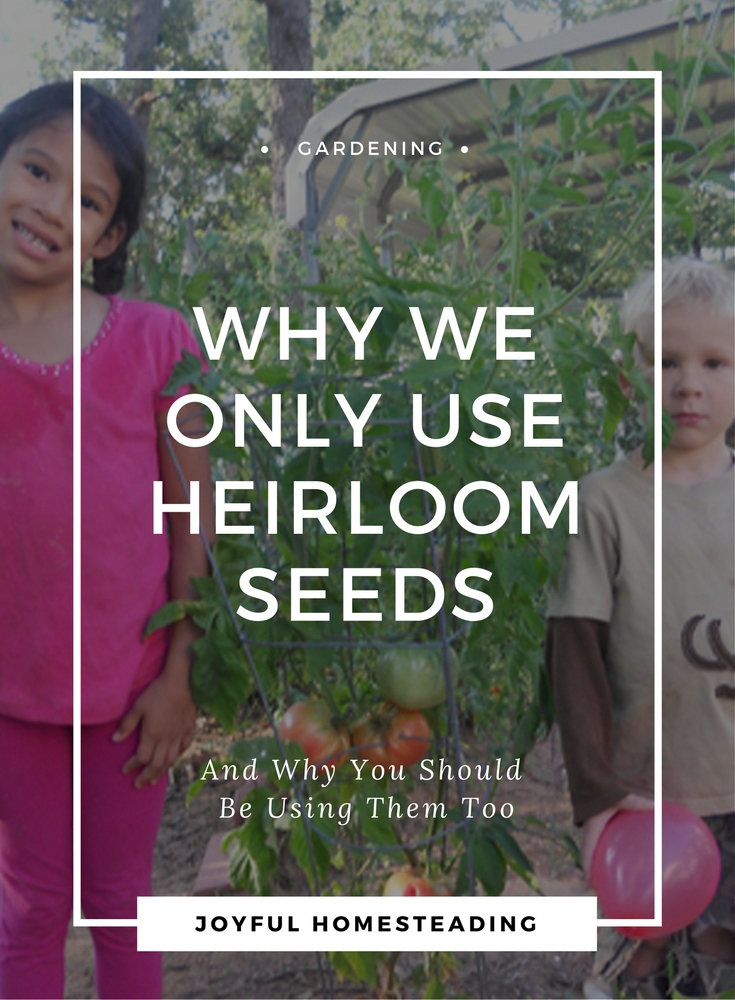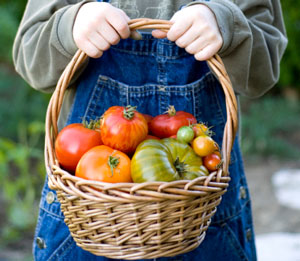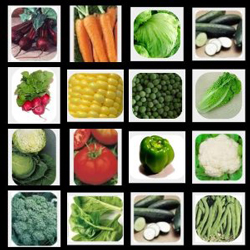Heirloom Seeds
Heirloom seeds are a wise investment not only because you are saving an age-old variety of vegetables, but also because food grown from heirloom garden seeds are far better for your health. But don't expect to find these seeds in your local gardening center.

What's the Difference With Heirloom Seeds?

Buy a pack of seeds from many seed companies, and you're likely to have a package of hybrid seeds.
So what's wrong with hybrid seeds? And why should you use the heirloom variety instead, investing in seeds that are safer and healthier? Here are a few reasons:
Gardening Self Reliance
Hybrid seeds are produced through cross-pollination, the mixing of plants of two different breeds for a specific reason, such as bigger fruit, a different look, etc. But the problem with hybrid seeds is you won't be able to harvest further seeds from the fruit they produce.
Buy some tomato seeds of a certain variety, grow them, and then harvest the fruit.
Save the seeds, and you may get the same sort of tomatoes...or you may wind up with a different variety altogether.
Or worse still, the seeds may be sterile.
Organic heirlooms, on the other hand, will produce the exact same type of fruit year after year, generation after generation.
Greater Variety
Heirloom garden seeds give you a wide variety of foods. Find some here.
Commercial growers, interested in the bottom line, only want those vegetables that produce a large yield.
That means fewer types of vegetables available at the supermarket.
Those of us who grew up getting our food from the store rather than growing it never knew of the great variety of vegetables we were missing out on.
With heirlooms, we get to enjoy the tomatoes our great grandmothers likely served their families.
From a survival standpoint, greater variety is crucial. If you only have a single crop of vegetables, a blight could come along and completely wipe it out. But with the wide variety that heirloom seeds will provide, you will still have food on the table even if one type of vegetable isn't successful.
Better Taste and Nutrition
Hybrids have been developed to produce vegetables that can travel long distances without bruising or spoiling. The downside of these vegetables is they have less taste and nutrition. Heirloom seeds will provide you with vegetables that taste the way they were meant to taste.
Healthier for Us and the Planet
Not satisfied with what hybrids can produce, agriculture is not turning to genetically modified organisms, also known as GMOs. Breeders are now splicing the DNA of different plants (or just about anything else they see fit) with the vegetables we eat, hoping to "improve" the food. But it's not necessarily safe.
In a recent study released by the International Journal of Biological Sciences, researchers have found that genetically modified corn is linked to organ damage in rats.
The damage occurred in the kidney and liver functions of the rats, two major diet detoxification organs.
There were also effects on the heart, adrenal, spleen, and blood cells of the rats.
Eating these genetically modified organisms could also aggravate allergies.
By growing food from heirloom plants, you help ensure a healthier lifestyle.








New! Comments
Have your say about what you just read! Leave me a comment in the box below.